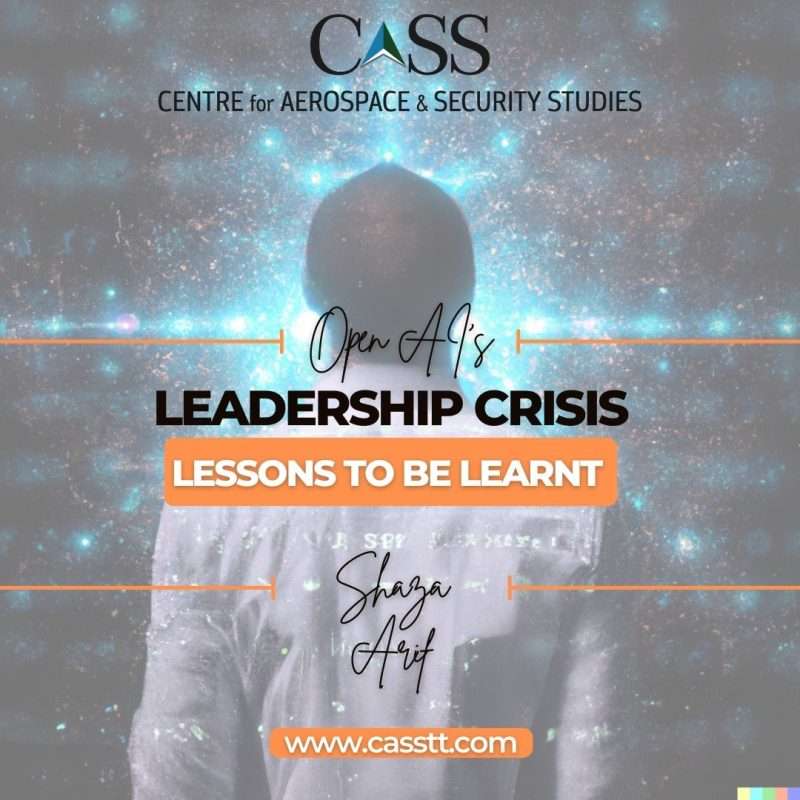OpenAI has emerged as an important entity in the tech world, gaining immense popularity for its groundbreaking advancements in Artificial Intelligence (AI). The company surfaced to the pinnacle of its popularity following the launch of ChatGPT, an advanced AI tool that impressed users with its human-like writing style. In the form of ChatGPT, OpenAI has made AI tangible, bringing it to everyone’s palm – quite literally. However, the company recently encountered a high-profile leadership crisis. The manner in which OpenAI’s CEO, Sam Altman, an AI superstar was removed from his position was widely criticised, leading to considerable media attention and public intrigues, which made it nothing less than a thrilling webisode, culminating in a happy ending – or at least so it seems for now.
Dialing back, on 17th November, Sam Altman, was suddenly fired by the company’s Board without any reasonable justification or warning. However, in a swift and dramatic turn of events, Altman was back as the company’s CEO a few days later ending an extraordinary week in the AI industry. However, the story does not end here. Not surprisingly, upon his return, Altman removed the Board that fired him in the first place and replaced them with a new team. The crisis has apparently been settled for the time being – again as it seems, after immense media attention and a complex struggle between the various stakeholders involved.
The exact reason for Altman’s dismissal has still not been revealed, and negligible information is available to the public. However, the future trajectory of AI vis-à-vis Open AI might have influenced the Board’s decision. The initial goal of OpenAI as a non-profit company was to adhere to safe and beneficial AI. However, the towering cost of the kind of immense computing involved – running into billions of dollars – required a shift to a for-profit model. Hence, OpenAI was monetised by establishing a for-profit setup named ‘OpenAI LP’, aligning its operational activities to conventional tech companies, with several investors involved in the project. Under Altman, OpenAI was performing phenomenally well, with the company generating nearly USD 1 billion, surpassing the company’s own projected figure. Nonetheless, the swift pace of AI developments vis-à-vis ChatGPT might have raised concerns. It has also been reported that several AI staff researchers wrote a letter to the OpenAI Board regarding a potential discovery that was potentially harmful to humanity. The Board may have had concerns regarding the rapid advancements and may have preempted compromise on safe and responsible AI aspects under Altman’s leadership. These apprehensions may have been the driving force for the Board to oust Altman in such a slapdash manner.
Interestingly, following Altman’s removal, Microsoft – a major investor of OpenAI witnessed a downward trajectory in stocks, marking a negative decline of approximately 2%. Hence, OpenAI investors, including Microsoft, used their influence to convince the Board to bring back Altman as the CEO. Likewise, 700 AI employees demonstrated solidarity with Altman and threatened to quit and join Microsoft if he was not reinstated. The combined pressure ultimately led to Altman’s return. The event also demonstrates the influential role of investors. Despite their initial resolve, the AI Board could not withstand the pressure from those who have poured billions of dollars into the venture.
So, was the recent turmoil surrounding Sam Altman’s removal and subsequent reinstatement as the head of OpenAI merely a storm in a teacup or something more significant? This event, though brief and filled with suspense, offers several key insights.
First, it demonstrates the influential role of collective employee action within organisations, especially as internal stakeholders. This aspect is crucial in understanding the dynamics of power in corporate settings. Second, it sheds light on the intricate challenges stakeholders face in balancing progress, safety, and profit during the research and development of rapidly evolving, disruptive technologies. It underscores the complexity of navigating these often competing priorities. Additionally, this situation serves as a reminder of the growing trend where major technological projects are increasingly being introduced to the public by private companies, often without substantial government involvement or oversight. This shift highlights the urgent need for regulatory frameworks to ensure the safe utilisation of such technologies. Fourth, the case also underscores the criticality of ethical decision-making in the tech industry where there is need for diverse perspectives in traversing ethical dilemmas. It also brings into focus the impact such incidents can have on public trust and perception, an essential factor in the widespread acceptance and integration of new tech. The role of media in shaping these narratives cannot be understated, as it significantly influences public discourse and investor confidence. This situation also reflects on the broader implications for innovation and market competition within the tech sector, suggesting a potential reevaluation of governance models to ensure stability and effectiveness of tech leadership in shaping the direction and future of technological advancements. The decision-making and vision of leaders plays a pivotal role in steering the course of innovation and its integration into society.
Time will tell who was on the right side of this AI drama but as organisations and individuals navigate this rapidly evolving technological landscape, these considerations will be pivotal in shaping a future where innovation is not only groundbreaking but also ethically grounded and socially responsible.
Shaza Arif is a Research Assistant at the Centre for Aerospace & Security Studies (CASS), Islamabad, Pakistan. The article was first published in Modern Diplomacy. She can be reached at: [email protected].
Design Credit: Mysha Dua Salman





